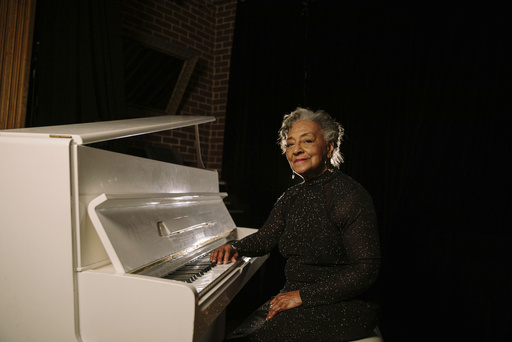
NEW YORK — Bertha Hope began her journey with music at the tender age of three, when she effortlessly played Brahms’ “Lullaby” on the piano after hearing it on the radio. Her parents, both entertainers, were taken aback and soon realized that their daughter possessed a special talent worthy of encouragement. Now at 88, Hope has spent decades as a jazz pianist, composer, and bandleader. Despite her accomplishments, she, like many jazz musicians, still seeks support for her talent.
To aid artists like Hope, The Andrew W. Mellon Foundation and The Jazz Foundation of America have recently unveiled the Jazz Legacies Fellowship. This $15 million initiative promises to provide 50 jazz artists aged 62 and older with lifetime achievement awards that include a $100,000 unrestricted grant, along with professional support and performance opportunities.
“It’s an incredible and very humbling honor,” Hope expressed, as she proudly joins the inaugural group of 20 fellows. “It will change my life forever.”
Many jazz musicians, including Hope, have significantly influenced the genre and received accolades, yet they often lack financial rewards comparable to artists in other genres. As a result, they frequently find themselves touring more than preferred to sustain their livelihoods. Hope shared that the grant would provide her with the financial stability needed to delve into recordings from New York’s Boogie Woogie Studio, which was managed by her second husband, renowned jazz bassist Walter Booker.
“They’ve been in my closet for so long,” Hope remarked, recalling that Boogie Woogie offered free recording time to up-and-coming musicians. “I would like to see if they’re worth saving.” This artistic endeavor aligns perfectly with the mission behind the Jazz Legacies Fellowship, as it aims to protect both the past and future of jazz music.
Elizabeth Alexander, president of The Mellon Foundation, emphasized the significance of jazz as a vital American art form. She explained, “People playing at the highest levels today can trace their genealogy right back to the people who began the art form… We thought that jazz was at this point where, especially for its elders and its history, there was a lot that we wanted to be able to protect and support.”
The Jazz Legacies Fellowship is part of a broader commitment of $35 million from the Mellon Foundation to support jazz initiatives. This funding will also benefit organizations such as the Ellis Marsalis Center in New Orleans, the Afro Latin Jazz Alliance/Belongo in New York, and The Pittsburgh International Jazz Festival.
Jazz pianist Jason Moran, who collaborated with foundation officials and fellow musicians like Terri Lyne Carrington and Esperanza Spalding to develop the fellowship, reflected on the invaluable lessons he learned from the genre’s legends. Moran noted that while some have been fortunate, many jazz musicians have navigated challenging circumstances. “What I wished for these royal beings was more of the kind of support that I feel they have offered the world, especially the musical world,” he explained.
Joe Petrucelli, the executive director of the Jazz Foundation of America, which will manage the fellowship, pointed out that it aims to offer stability in a profession often marked by uncertainty. “There’s no retirement plan,” he said. “There’s inadequate health coverage for so many. The life is just a precarious one… We want to make life easier however we can.”
Petrucelli expressed excitement about assisting Hope, calling her vision for the fellowship the “best-case outcome,” noting the admiration and respect she commands within the community.
In response, Hope articulated that this recognition affirms the value of her contributions to jazz, underscoring her desire to be an integral part of the genre. “From my point of view, jazz couldn’t have been born any place else,” she stated. “It came because of slavery and because of the contact between white and Black people, as they were always looking for ways to be free.”
The 2025 Jazz Legacies Fellows include a distinguished group of artists: George Cables, Valerie Capers, George Coleman, Akua Dixon, Manty Ellis, Billy Hart, Tom Harrell, Roger Humphries, Carmen Lundy, Amina Claudine-Myers, Roscoe Mitchell, Johnny O’Neal, Shannon Powell, Julian Priester, Dizzy Reece, Herlin Riley, Michele Rosewoman, Dom Salvador, and Reggie Workman, showcasing the rich tapestry of talent within the jazz community.

